Post
A catch
Save a catch to start your fishing logbook. You will be able to to share it with the community if yo want!
A fishing trip
Post an ad to go fishing with other fishermen
Save a catch to start your fishing logbook. You will be able to to share it with the community if yo want!
Post an ad to go fishing with other fishermen
Share a thought, a question with the community
My favorite cities
×Join our 61 fishermen in Hallin in Highland. The fishing forecast is currently 3.9. The most caught fishes here are the ling fish, the european eel, the conger eel and the weever fish. Come try the most famous fishing techniques like the the bolognese fishing, surfcasting fishing for sea bream, heavy trolling for pollack or surfcasting.
Our fishing forecast of Hallin indicates the best time to go fishing in this city.
The Ling fish
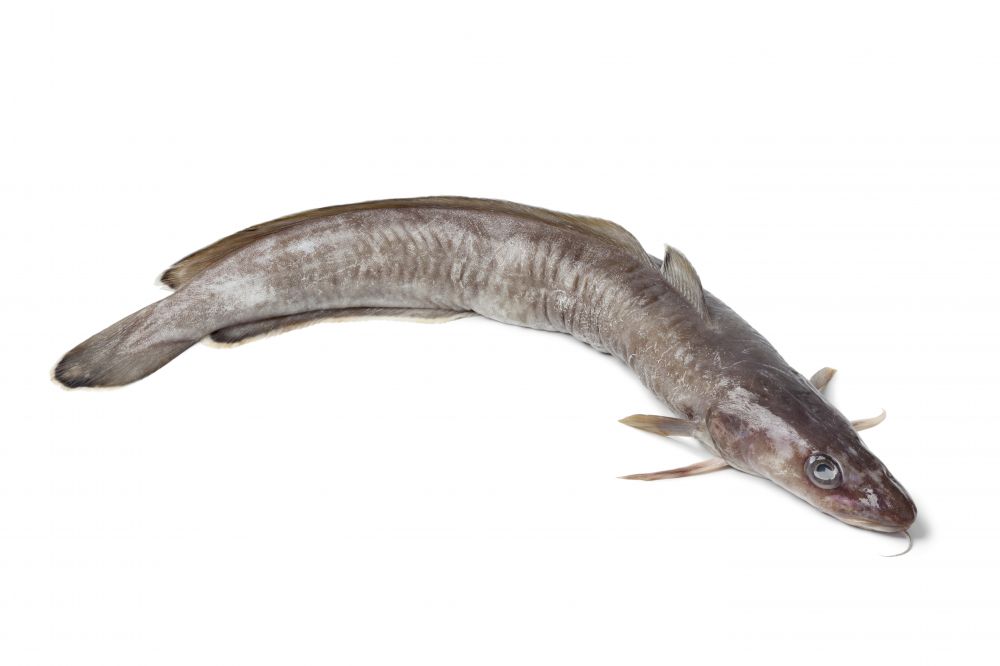
The Ling fish belongs to the Lotidae family. It generally measures 1.60 m in adulthood, but can reach a height of 2 meters and weigh up to 45 kg. Its longevity is estimated at 10 years for males and 14 years for females. Breeding takes place from March to July. The female can lay up to 60 million eggs. It can be fished all year round except in winter. The Ling has a cylindrical and very elongated body. The head is flattened with a prominent upper jaw. The fairly long chin barbell is larger than the diameter of the eye. This species has two dorsal fins and one anal fin. The first dorsal fin is shorter and often shows a black spot on the back, the second one runs the rest of the body to the tail. The black caudal fin has a white border on the tip. It is uniformly greenish brown in color, but slightly darker dorsally in adults. The young are often lighter, with its coloring more or less marbled orange.
The Ling fish is a famous fish you can catch in Hallin.The European Eel
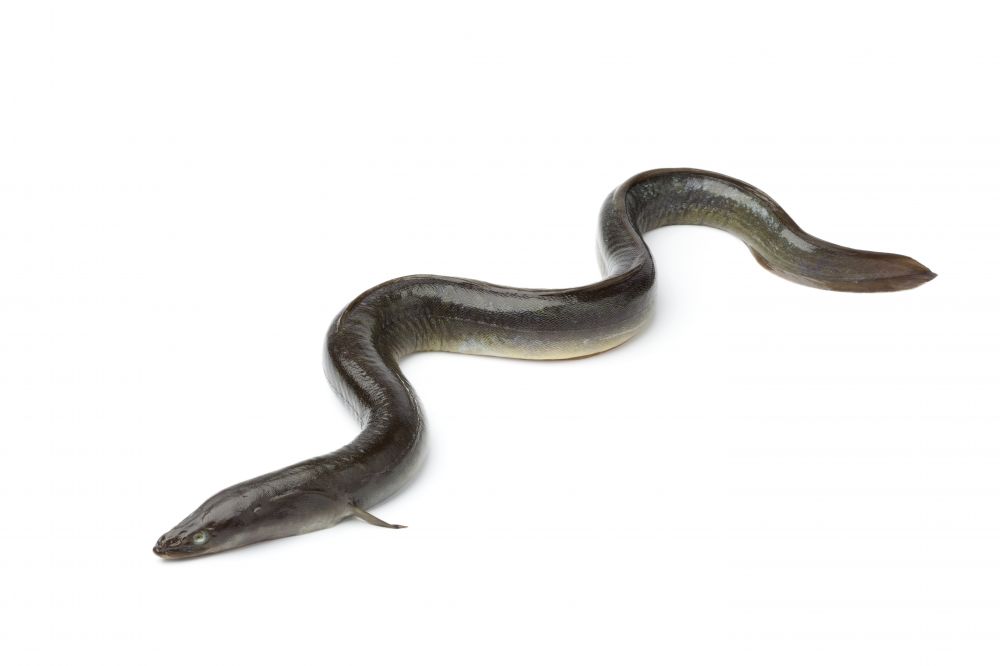
The European Eel belongs to the Anguillidae family. The european eel can reach a maximum size of 1.50 m and a weight of 3 kg. However, males rarely exceed 45 cm. The current size is more modest and varies between 40 and 60 cm. Its longevity is 12 to 20 years but in captivity it can reach more than 50 years. They can be fished from June to September. The European eel has a snake-like body, with a circular cross-section and very elongated. The body is covered with smooth, viscous skin, rich in thick mucus-secreting cells. The scales are small, oval and deeply embedded in the skin. It has a small round eye and a terminal mouth. The lower jaw is prominent. The color of the eel varies as it grows. In the yellow eel stage, it has a brownish, greenish or yellowish color depending on its habitat (homochrome). The lateral line is not very visible. In the silver eel stage, the back is dark green, the sides have silvery highlights and the belly is pearly white. The lateral line becomes very visible. The body of the European eel does not have pelvic fins. The pectoral fins, the only even fins, are small. On the other hand, odd fins (dorsal, anal, caudal) are very long and fuse at the tail.
The European Eel is a famous fish you can catch in Hallin.The Conger Eel
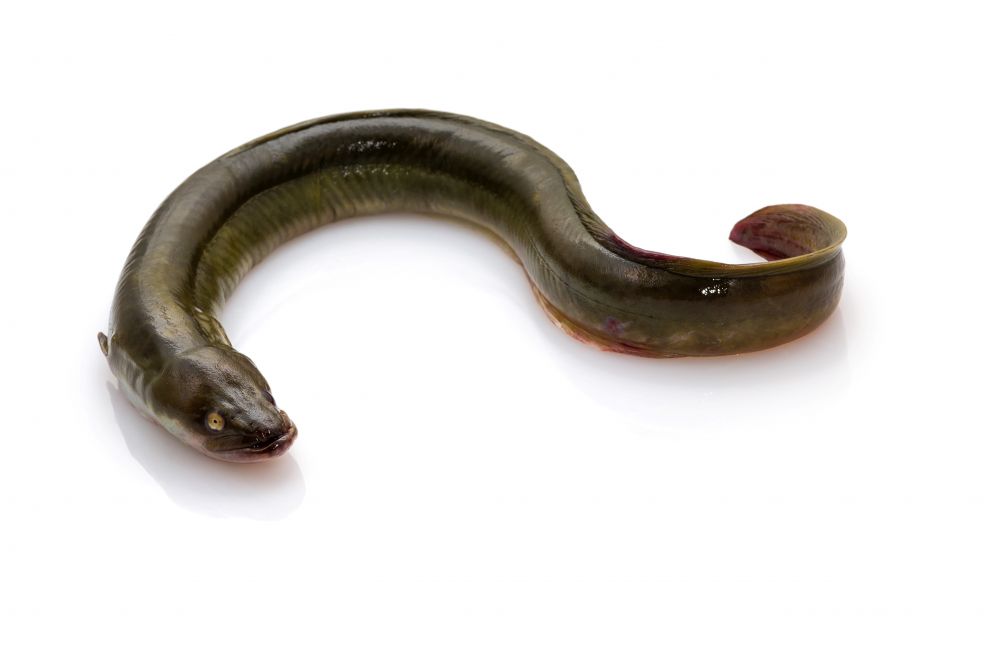
The Conger Eel belongs to the Anguillidae family. Its average size is 40 to 150 cm for an average weight of 4 kg. It has a life span of 50 years old. They breed from spring to summer. The best period to fish for Conger Eel is from April to September at night. Snake-shaped, oval body and the rear part is vertically compressed. The skin is relatively thick and covered with mucus that covers the scales. The lower jaw is longer than the upper and the nostrils are tubular. The dorsal and anal fins merge with the caudal fin and this all forms a single continuous fin that starts well behind the pectoral fins. There is no pelvic fin. Back brown-green with yellowish belly for yellow eel but back black with silver belly for silver eel. It turns black with a silver belly in silver eels for individuals ready to migrate to the Sargasso Sea.
The Conger Eel is a famous fish you can catch in Hallin.The Weever fish
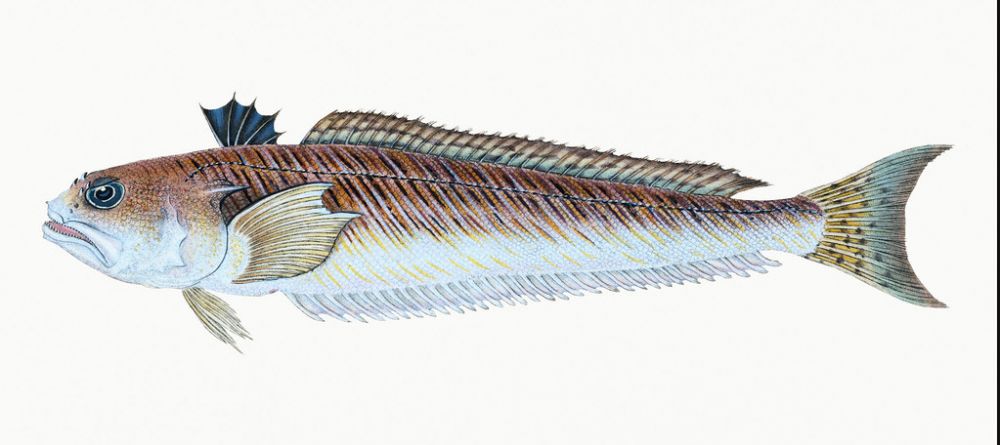
The Weever fish belongs to the Trachinidae family. The Weever fish form a family of perciform marine fish, the Trachinidae, which includes nine species. Their sizes vary from 15 cm to more than 50 cm depending on the species. The Nine species are: The Lesser weever, the Spotted weever, the Guinean weever, the Sailfin weever, the Trachinus cornutus, the Greater weever, the Striped weever, the Cape Verde weever and the Starry weever. It can be fished during the hot seasons. The Weever fish can be classified into two categories, on the one hand the small Vive which measures less than 15 cm, and the large Vive, measuring on average 2 to 30 cm and can reach 50 cm in length. The large weever differs from the small one in that it has four thorns in its orbits. The weever is always dangerous, in that it is endowed with erectile spines are the bite is very toxic, which can have long-term consequences in humans. The weever is yellow on the back, with a whitish belly and yellow or brown streaks. Accidents are much more frequent since the weever is often buried in the sand, so the risk is greater, as you may step on it and get stung.
The Weever fish is a famous fish you can catch in Hallin.The Mullet fish
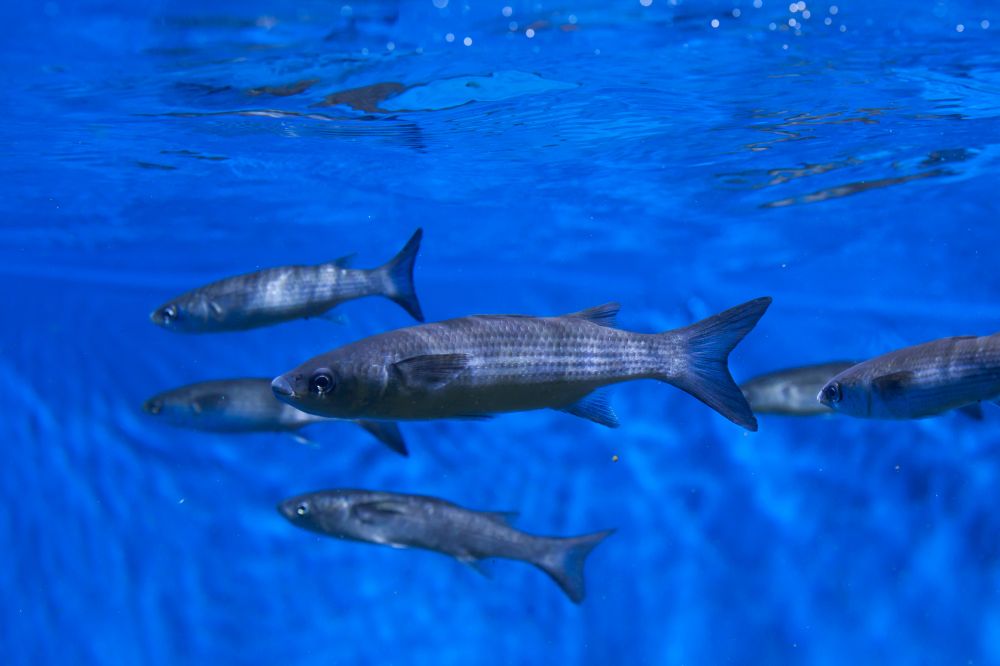
The Mullet fish belongs to the Mugilidae family. It can measure up to 75 cm and weigh 2.5 kg. A 16-year-old individual holds the observed longevity record. Breeding generally takes place from July to October. The female can lay up to 2.6 million eggs. It is fished from April to August. The mullet has an elongated body of about 35-50 cm or even 70 cm, with an oval cross-section and a robust appearance. Its color is generally silvery grey, bluish (sometimes more or less white, olive or brown), lightening on the sides and light belly. Sometimes grey longitudinal lines and golden reflections are present on the dorsal part. The lateral line is rarely visible. A small black spot is often present in the armpits of the pectoral muscles. The flattened head is wide, fat eyelids are well developed (but not always visible underwater because of their transparency) and protect the eyes near the snout. Its mouth has straight, dense and thin teeth, usually in several rows. The commissure ends below the posterior level of the nostril. Its upper lip is thin and smooth. It has two dorsal fins: the first with four spines and the second with 8-9 soft rays. The yellowish anal fin has 8 soft rays and 3 spines; pectoral fins have 16-19 rays; the pectoral axillary scale is well developed and about one-third the length of the fin. The ventral, anal and lower lobe of the caudal fins are sometimes yellow (but not necessarily yellow). The scales, arranged in lateral series (36-45), are cycloid (smooth
The Mullet fish is a famous fish you can catch in Hallin.Our fishing forecast of Hallin indicates the best time to go fishing in this city.
Our fishing forecast of Hallin indicates the best time to go fishing in this city.
Our fishing forecast of Hallin indicates the best time to go fishing in this city.
